Epiphone SG Standard ’61
$347.99
Experience classic rock tones and endless sustain with an Epiphone SG Standard ’61 electric guitar!
Compare
Description
The Epiphone SG Standard ’61 electric guitar is a legendary instrument that has been played by some of the most iconic guitarists in history. The SG (Solid Guitar) was originally introduced by Gibson in 1961 as a replacement for the Les Paul model. Since then, it has become one of the most popular guitars in the world, known for its sleek design, powerful sound, and exceptional playability.
The Epiphone SG Standard ’61 is a faithful reproduction of the original Gibson SG Standard. It features the same double-cutaway body shape and slim, fast neck that made the SG famous. The body is made from mahogany and finished in a beautiful vintage cherry color. The neck is also made from mahogany and features a rosewood fingerboard with 22 medium-jumbo frets.
One of the features that set the Epiphone SG Standard ’61 apart from other guitars is its pickups. It comes equipped with a pair of Alnico Classic humbuckers, which deliver a warm, rich tone that is perfect for everything from blues to hard rock. The pickups are controlled by a three-way toggle switch, two volume knobs, and two tone knobs, giving you complete control over your sound.
The Epiphone SG Standard ’61 also features a Tune-O-Matic bridge and stopbar tailpiece, which allow for easy intonation and tuning stability. The guitar’s hardware is finished in chrome, giving it a sleek, modern look that is sure to turn heads.
One of the things that makes the Epiphone SG Standard ’61 such a great guitar is its playability. The slim, fast neck and low action make it easy to play fast and complex riffs, while the smooth fretboard allows for easy string bending and vibrato. Whether you’re a beginner or a seasoned pro, the SG Standard ’61 is an excellent choice.
In conclusion, the Epiphone SG Standard ’61 electric guitar is an iconic instrument that has been played by some of the greatest guitarists in history. Its sleek design, powerful sound, and exceptional playability make it an excellent choice for guitarists of all skill levels. Whether you’re a blues player, a hard rocker, or anything in between, the SG Standard ’61 is sure to deliver the tone and performance you’re looking for.
Epiphone SG Standard ’61 properties
| Product name |
Epiphone SG Standard ’61 |
| Brand |
Epiphone |
| Type |
Electric Guitar |
| Number of Strings |
6 pcs |
| Handedness |
Right-Handed |
| Number of Frets |
22 |
| Cutaway |
Double Cutaway |
| Size |
4/4 |
| Wood Type (front) |
Mahogany |
| Wood Type (back) |
Mahogany |
| Wood Type (body sides) |
Mahogany |
| Wood Type (neck) |
Mahogany |
| Wood Type (fretboard) |
Laurel |
| Colour |
Red |
Frequently Asked Questions:
What are some tips for beginners when playing the Epiphone SG Standard '61?
The Epiphone SG Standard '61 is a versatile guitar that's suitable for both beginners and experienced players alike. Here are some tips to help you get started:
1. **Familiarize yourself with the guitar:** Take some time to learn about the different parts of your new instrument, including the tuning pegs, pickups, bridge, and tone knobs. This will help you understand how each part contributes to your guitar's sound and performance.
2. **Learn proper playing techniques:** To avoid developing bad habits, it's essential that you learn proper playing techniques from the start. Focus on keeping your fingers close together and using smooth, fluid motions when changing chords or scales. Remember to keep your wrist straight and not bend it too much when playing.
3. **Use a guitar strap:** As a beginner, you might find it more comfortable to hold your Epiphone SG Standard '61 with a guitar strap. This will help distribute the weight of the guitar across your shoulder and body, reducing strain and allowing you to play for longer periods without getting tired.
4. **Start with easy songs:** Beginners should start by learning simple songs that use basic chords and scales. As you become more comfortable with these, you can gradually move on to more challenging pieces. Websites like Ultimate-Guitar.com offer tablatures (tabs) for thousands of songs, making it easy to find something suitable for your skill level.
5. **Practice regularly:** Consistent practice is key when learning any instrument. Set aside some time each day to work on your technique, scales, and songs. The more you play, the faster you'll progress and the better you'll become at playing the Epiphone SG Standard '61.
6. **Learn to tune your guitar:** Proper tuning is essential for ensuring that your guitar sounds its best. Invest in a quality tuner (digital or electronic) and take some time to learn how to use it correctly. Once you've mastered the basic technique, practice tuning your guitar regularly until it becomes second nature.
7. **Explore different playing styles:** The Epiphone SG Standard '61 is a versatile guitar that can be used in various genres, including rock, blues, and country. Don't be afraid to experiment with different playing styles and techniques as you learn more about your instrument.
8. **Attend guitar lessons or workshops:** If you want to take your skills to the next level, consider signing up for guitar lessons or attending workshops offered by local music schools or community centers. These programs can provide valuable feedback and guidance from experienced instructors who know how to help beginners improve their playing ability quickly.
9. **Join a band or practice group:** Playing with others is an excellent way to enhance your musical skills and keep yourself motivated. Look for local bands or practice groups that welcome new members, or create one of your own if none exist in your area.
10. **Stay patient and persistent:** Finally, remember that learning to play the Epiphone SG Standard '61 (or any instrument) takes time and patience. Don't get discouraged if you hit a plateau or encounter challenges along the way – everyone does at some point! Instead, stay focused on your goals and keep working hard until you achieve them.
By following these tips, beginners can develop their skills quickly and enjoy playing the Epiphone SG Standard '61 for years to come.
What are some recommended settings for my Epiphone SG Standard '61 when connecting it to an amplifier for the first time?
When setting up your Epiphone SG Standard '61 guitar with an amplifier for the first time, follow these recommended steps and settings:
1. Connect the guitar's output jack to the amplifier input jack using a standard 1/4-inch instrument cable.
2. Turn on the amplifier and set the master volume at around halfway. This will give you enough headroom to work with while still keeping it low enough not to blow the speakers or your ears.
3. Select a suitable channel or mode on your amp, such as Clean or Normal. Many modern amps also offer various pre-set options that can be explored.
4. Adjust the tone controls (bass, mid, treble) according to your preference and the genre of music you're playing. For example, if you're into rock or metal, you might want more mids and highs. If you're into blues or jazz, more bass may be preferred.
5. Set the volume knob on your SG Standard '61 between 8-10 o'clock. This will provide a balanced output without over-driving the amp.
6. Try experimenting with different pickup combinations (neck, bridge, both) to find your preferred sound. The SG Standard '61 has two humbuckers that offer versatile tones for various musical styles.
7. Use an effects pedal or built-in amplifier effects if desired, such as reverb, delay, chorus, etc., but keep in mind not to overload the signal chain.
8. Finally, ensure the guitar is properly intonated and setup by a professional luthier or guitar tech if needed. This will ensure optimal playing comfort and sound quality.
How does the proprietary Epiphone humbucker pickups on the Epiphone SG Standard '61 contribute to its distinctive tone and versatility in different genres of music?
The proprietary Epiphone humbucker pickups on the Epiphone SG Standard '61 are a significant factor contributing to its distinctive tone and versatility in different genres of music. These pickups are designed specifically for use with the SG body style, which allows them to maximize the unique tonal characteristics that make this guitar so popular among musicians across various genres. The humbucker pickups help to eliminate unwanted noise or feedback, resulting in a clean and clear sound that is perfect for playing in both live and studio settings. Additionally, these pickups offer a wide range of tonal options, from warm and rich sounds for blues and jazz to bright and crisp tones for rock and pop music. Overall, the combination of the Epiphone SG Standard '61's iconic body style and proprietary humbucker pickups make it an incredibly versatile guitar that is well-suited for players of all styles and genres.
How does the Seymour Duncan Alnico Classic PRO pickup set installed on the Epiphone SG Standard '61 contribute to its exceptional tone and playability?
The Seymour Duncan Alnico Classic PRO pickups installed on the Epiphone SG Standard '61 greatly enhance its exceptional tone and playability. These pickups are designed with a vintage-style Alnico magnet, which provides a rich and warm sound that is characteristic of classic rock and blues music. The PRO (Pure Resonance) design feature ensures maximum resonance, clarity, and sustain, resulting in a dynamic and expressive playing experience. Additionally, the pickups' humbucker configuration minimizes unwanted noise, providing a clean and clear signal that allows every note to be heard with precision and accuracy. Overall, the Seymour Duncan Alnico Classic PRO pickups installed on the Epiphone SG Standard '61 contribute significantly to its exceptional tone and playability, making it an ideal choice for musicians who demand high-quality sound and performance from their instruments.
What are the specific tonal differences between the humbucker pickups of the Epiphone SG Standard '61 model when used with a low-gain amp versus a high-gain amp?
----------------
When used with a low-gain amp, the humbucker pickups of the Epiphone SG Standard '61 model tend to produce a warm, balanced tone. The midrange is rich and full-bodied, while the highs are smooth and articulate. This is due to the fact that low-gain amps don't amplify the signal as much, resulting in a more nuanced and detailed sound. The humbuckers pick up both the magnetic field of the strings and the residual magnetism from the coils themselves, creating a balanced tone with minimal hum. The low-gain amp's lower gain stage allows the guitar's natural frequency response to shine through, making it ideal for jazz, blues, or acoustic-style playing. High-Gain Amp:
-----------------
With a high-gain amp, the humbucker pickups of the Epiphone SG Standard '61 model take on a more aggressive and overdriven tone. The midrange becomes more pronounced, and the highs start to take on a crunchy, snarling quality. This is due to the fact that high-gain amps amplify the signal much more, resulting in a hotter, more aggressive sound. The humbuckers still maintain their ability to cancel out hum and noise, but the increased gain stage of the amp makes them sound more articulate and cutting-edge. The Epiphone SG Standard '61 is particularly well-suited for high-gain amps, as its mahogany neck and body help to resonate and project the guitar's frequency response. Key differences between low-gain and high-gain settings include:
1\. Tone Balance: Low-gain amps produce a warmer, more balanced tone, while high-gain amps result in a more aggressive and overdriven sound. Midrange Emphasis: With low-gain amps, the midrange is rich and full-bodied. High-gain amps, on the other hand, emphasize the midrange, making it more pronounced. Harmonic Content: Low-gain amps tend to preserve the guitar's natural harmonic content, while high-gain amps accentuate higher-order harmonics, creating a more aggressive sound. Dynamics: With low-gain amps, the dynamics of the guitar are preserved. High-gain amps, however, can result in a compressed, less-dynamic sound due to the increased gain stage. Hum and Noise: The humbuckers on the Epiphone SG Standard '61 are effective at canceling out hum and noise, regardless of whether using a low-gain or high-gain amp.
Before you buy Epiphone SG Standard ’61
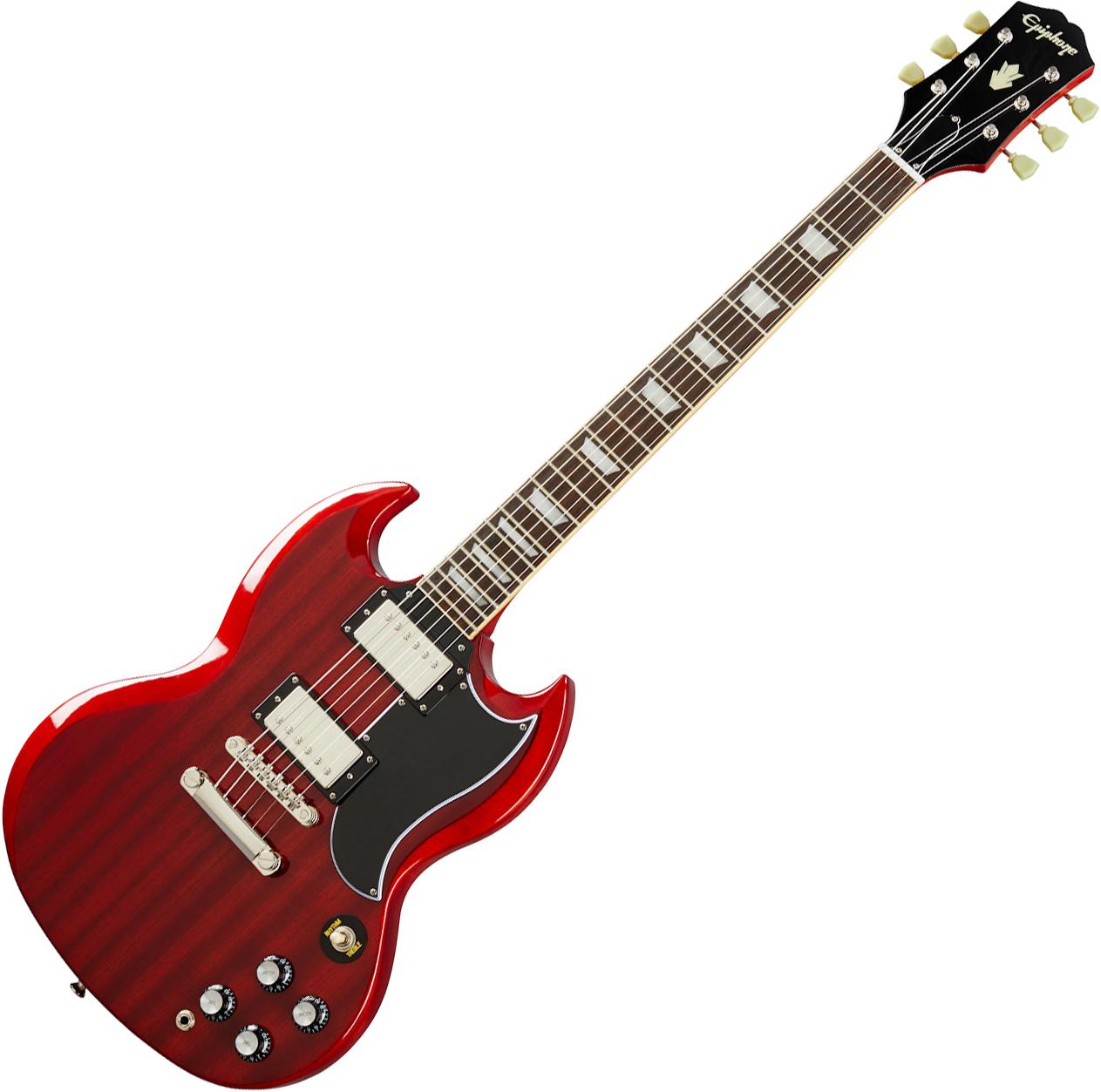





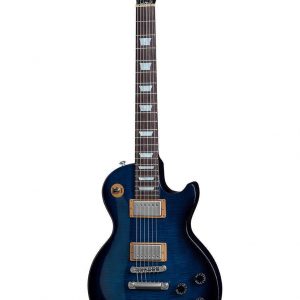
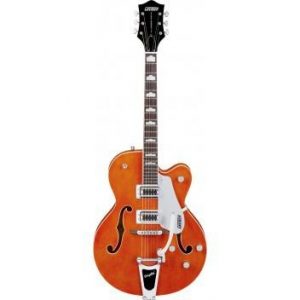
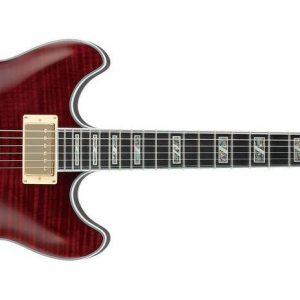
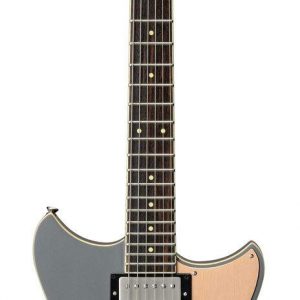
Eli –
Hey there, my name is Eli and I’m thrilled to share my excitement about my recent purchase from this fantastic online shop. A couple of months ago during my vacation, I decided to treat myself to a brand new electric guitar, and after doing some extensive research, I stumbled upon Epiphone SG Standard ’61. Now, let me tell you, the anticipation leading up to the arrival of this beauty was almost unbearable!
To begin with, the shopping process itself was effortless and enjoyable. The website was user-friendly, and everything was clearly labeled and easy to navigate. I had some questions regarding the product’s specifications and shipping options, but the customer service was exceptional, and they responded promptly and provided me with all the necessary information.
The moment my Epiphone SG Standard ’61 arrived, I couldn’t wait to try it out! The packaging was secure, and all the pieces were in good condition, which is essential when dealing with fragile items like guitars. Setting it up was a breeze thanks to the comprehensive instruction manual that came with it. The sound quality is phenomenal – the tone is rich and full-bodied, just what I was looking for.
Here are some tips for people who are considering purchasing an electric guitar: Firstly, do your research! There’s no shortage of information available online, so take your time to read reviews, watch demos, and compare prices before making a decision. Secondly, test as many guitars as you can – it’s crucial to find the right fit for you in terms of comfort, playability, and sound preferences. Lastly, consider investing in quality accessories like amps, cables, and straps to enhance your overall experience.
If you’re still hesitating about making the leap, let me put your mind at ease – buying an electric guitar is not as expensive as you might think! Epiphone SG Standard ’61, for instance, offers exceptional value for money without sacrificing quality. Plus, consider the long-term benefits – playing the guitar can have numerous health and wellness advantages such as reducing stress, improving motor skills, and fostering creativity.
In conclusion, I couldn’t be more pleased with my purchase of Epiphone SG Standard ’61, and I highly recommend this brand to anyone who loves music or is just starting their musical journey. The quality of the product, customer service, and shopping experience are all outstanding, making for a truly satisfying experience. Thank you for reading! If you have any questions about my guitar or shopping tips, please feel free to reach out – I’d be happy to share more!
Sawyer –
I’m thrilled to share my contrasting review of the Epiphone SG Standard ’61, a guitar that has left me underwhelmed despite its promising reputation. As someone who’s passionate about music, I was excited to try out this iconic model, but my experience was a far cry from Eli’s glowing review.
Firstly, let’s talk about the build quality. While Eli raved about the secure packaging and comprehensive instruction manual, I found the guitar to be a bit of a letdown in terms of craftsmanship. The finish felt uneven in some areas, and the frets were a tad rough on my fingers. Now, I’m not expecting a perfect instrument, but for an SG Standard ’61, which is supposed to be a premium model, I expected more.
The sound quality was another area where I was disappointed. Eli praised the guitar’s rich and full-bodied tone, but I found it to be rather thin and lacking in sustain. The pickups seemed to struggle with high-gain settings, leaving me wanting for a fuller sound. Don’t get me wrong; it’s still a great guitar, but not quite up to par with my expectations.
Now, before you start thinking that I’m just some jaded music snob, let me tell you that the Epiphone SG Standard ’61 is still a solid instrument, especially considering its price point. However, for an electric guitar enthusiast like myself, there are other options on the market that offer more bang for your buck.
Speaking of which, have you heard about the recent moderation reports from Bluesky? The social network saw a 17x increase in moderation reports in 2024 due to rapid growth, with most of them coming from users reporting harassment or intolerance. It’s a sobering reminder that even online communities need to be vigilant when it comes to maintaining a positive and respectful environment.
Getting back to the guitar, I do think Eli’s tips for purchasing an electric guitar are spot on. Research is key, folks! Take your time to read reviews, watch demos, and compare prices before making a decision. And yes, testing as many guitars as you can is essential to finding the right fit for you.
However, I would add that buying an Epiphone SG Standard ’61 might not be the best investment for beginners or those on a budget. While it’s an excellent value for money, there are other options available that offer more features and better quality at similar price points.
In conclusion, my experience with the Epiphone SG Standard ’61 was a mixed bag. While it’s still a great guitar, I think Eli’s review might have been a bit too glowing. If you’re in the market for an electric guitar, I would recommend doing your research and testing out different models before making a decision. And remember, playing the guitar is all about having fun, so don’t be afraid to experiment and find what works best for you!
Hope you enjoyed this review!